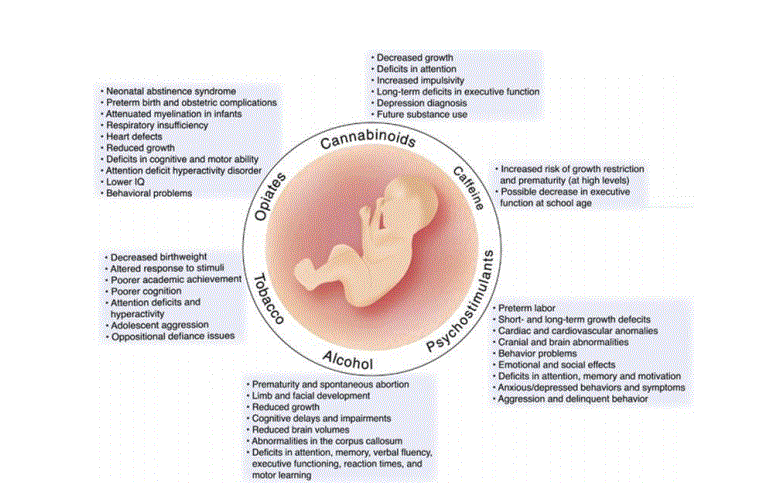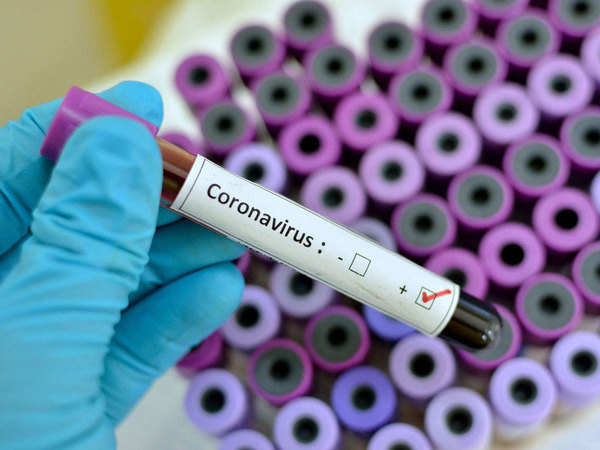ლევან ვასაძის პასუხი მარი კორკოტაძეს
როგორც საზოგადოებას ახსოვს, აუტისტის სპექტრის მქონე ბავშვის მშობელი მარი კორკოტაძე ლევან ვასაძისგან ტელემიმართვის დროს გაკეთებული განცხადების გამო საჯაროდ ბოდიშის მოხდას ან კვლევის გასაჯაროებას მოითხოვს.
ვასაძის ტელემიმართვა:
https://www.facebook.com/wcf10/videos/540335206331676/?hc_ref=ARSUq0eDFbIvjpeFf8SkqZkJeK8ejZo3cfnV-BH7FTFDlxfxMlKzu1bsi1G5T4TfL2g
მარი კორკოტაძე მოითხოვს, ლევან ვასაძემ დაასახელოს , თუნდაც ერთი სარწმუნო კვლევა, სადაც წერია, რომ ბავშვებს აუტიზმი, „ნარკომანი“ მშობლების გამო ემართებათ ან საჯაროდ ბოდიში მოიხადოს.
მარი კორკოტაძის მოთხოვნას ლევან ვასაძე გამოეხმაურა.
ლევან ვასაძის პასუხი მარი კორკოტაძეს
პატივცემულო ქალბატონო მარი,
მივიღე თქვენი გზავნილი, რომელშიც თქვენ უსაფუძვლოდ მდებთ ბრალს, რომ მე თქვენ რატომღაც დაგცინით და მიუხედავად ამისა გადავწყვიტე დავაკმაყოფილო თქვენი მოთხოვნა შესაბამისი ინფორმაციის მოწოდების შესახებ, რადგანაც სწერთ, რომ აუტიზმით დაავადებული ბავშვის დედა ბრძანდებით.
უპირველეს ყოვლისა ნება მიბოძეთ ვუსურვო თქვენს შვილს ჯანმრთელობა, ხანგრძლივი სიცოცხლე და მთელს თქვენ ოჯახს ყოველგვარი ბედნიერება და ღვთის წყალობა.
თქვენ თავადაც სწერთ, რომ აუტიზმის გამომწვევი მიზეზები არ არის მეცნიერთა მიერ ბოლომდე დადგენილი.
ამრიგად ერთნაირი ალბათობით შეგვიძლია ვამტკიცოთ საპირისპირო.
მე დავამატებდი, რომ როგორცა სჩანს არც ისაა ბოლომდე დადგენილი თუ რა არის თავად აუტიზმი, თუმცა რიგი ქცევითი დისფუნქციებისა, პატერნებისა და სინდრომებისა სახელდებულია „აუტისტურად.“
თქვენს თხოვნას რაც შეეხება, გიგზავნით ორ დოკუმენტს.
1. ამერიკელ მეცნიერთა ჯგუფის ჩატარებულ მეტა კვლევას, ანუ რამოდენიმე
სამეცნიერო კვლევაზე დაფუძნებულ კონსოლიდირებულ კვლევას, რომელიც
ჩაატარეს ემილ როსსმა, დევონ გრეჰემმა, კელი მონიმ და გრეგ სტენვუდმა. კვლევა
2014 წელს გამოქვეყნდა ამერიკის შეერთებული შტატების ავტორიტეტულ,
პროფილურ ჟურნალში, რომელსაც ქვია Neuropsycopharmacology და ითვლება ამ
სფეროს სპეციალისტების ერთერთ წამყვან რესურსად.
მეცნიერთა ნახსენები კვლევა ეხება სხვადასხვა ტიპის ნარკოტიკების ზეგავლენას ჩანასახზედა უტყუარად ამტკიცებს, რომ ნარკოტიკების მოხმარება უდაოდ იწვევს იმ დისფუნქციებს, პატერნებსა და სინდრომებს, რომლებიც ახასიათებთ მათ შორის აუტიზმის მატარებელი ადამიანების ქცევასაც.
გამარტივებული სქემატური სურათი ჩატარებული კვლევის შედეგად დადგენილი
ნარკოტიკების მიერ გამოწვეული სინდრომებისა შეგიძლიათ იხილოთ თანდართულ
სქემაზე:

ხოლო თავად კვლევის სრულ ტექსტს, შეგიძლიათ გაეცნოთ შემდგეგი ლინკის მეშვეობით,
აშშ-ს ნაციონალური სამედიცინო ბიბლიოთეკის ვებ-გვერდზე:
https://www.ncbi.nlm.nih.gov/pmc/articles/PMC4262892/
2. გერმანელი მეცნიერი და ექიმი, პროფესორი ფრიდრიხ ჰანსენი, სთვლის რომ
ნარკოტიკების მოხმარებასა და ამით გამოწვეული აუტიზმს შორის არსებული
კავშირი აშკარაა. მისი ამ თემაზე შეხედულების რეზიუმე თან დართულია წერილის
ბოლოს, ბმულში.
რეზიუმეში, სხვა კვლევებსა და დოკუმენტაციასთან ერთად ასევე მოყვანილია ამერიკელ
მეცნიერთა ჯუფის (E. Davis, I. Fennoy, D. Laraque, N. Kanem, G. Brown, and J. Mitchell)
კვლევა, რომელსაც ეწოდება Autism and developmental abnormalities in children with perinatal
cocaine exposure, რომელიც ასევე ადასტურებს ნახსენებ დამოკიდებულებას.
დასასრულს, სინანულით აღვნიშნავ, რომ ის ფორმა, რომლითაც თქვენ არჩიეთ შემთვის
მოგემართათ, მაფიქრებინებს, რომ აქ ეტყობა, სამწუხაროდ, ამაო იქნებოდა ჩემი
განმეორებითი მცდელობა კიდევ ერთხელ ამეხსენა თუ რა სახიფათო კანონპროექტს
ეძღვნებოდა ჩემი მიმართვა და რომ ის ჩვენი მომავალი თაობის ნარკომანიზაციისაგან
დაცვას ისახავდა მიზნად.
ის პირადი შეურაცხყოფა, დაცინვა და უსამართლობა რასაც მე განვიცდი ჩემსავე ქვეყანაში,
სიმართლის თქმისათვის, ყველას აშოროს ღმერთმა. მაგრამ ეს არასოდეს მაჩერებდა მე
სიმართლის თქმისაგან, როგორც მე ის მესმის, ჩვენი ქვეყნის ინტერესებიდან გამომდინარე.
თქვენ და თქვენს შვილსა და ოჯახის წევრებს კი, კიდევ ერთხელ, ღმერთმა არ მოგაკლოთ
ყოველგვარი სიკეთე და ბედნიერება.
პატივისცემით
ლევან ვასაძე
Resume by Dr. Fred Hansen
Substance abuse in Pregnancy and Autism
Substance abuse during pregancy has increased fivefold in the US since the year 2000
(http://americanpregnancy.org/pregnancy-health/illegal-drugs-during-pregnancy/). Research on
autism spectrum disorders (ASD) including Asperger syndrom, is still inconclusive and it is safe to
assume a multifactorial causation rather than one single cause.
Yet we have evidence that substance abuse is among those risk factors of autism. Pregnant
women who use illicit drugs surely increase the risk of having autistic offspring. It appears not
enough reasearch has been done in this field so far. What emerges though, is an affinity as
shown in several studies between the addictive and the autistic personality, which could be
framed as „monomania“ (Greek for obsession), suggesting that just like drug addicts depend on
substances, their autism spectrum offspring gets dependant on tangible items, „things“ rather
than loved ones. This puts autistic children at higher risk for substance abuse themselves:
(https://www.theatlantic.com/health/archive/2017/03/autism-and-addiction/518289/,)
In addition there is strong evidence for a genetic component, with higher frequence of autism
in identical than in biovular twins. In a family with one autistic child, the chance of having
another child with autism is about 5 percent – or one in 20 – much higher than in the normal
population. (source: Diagnostic Statistic Manual, Urban & Fisher, see also NICE:
/www.nice.org.uk/researchrecommendation/comparative-genomic-hybridisation-array-what-isthe-effectiveness-and-acceptability-of-comparative-genomic-hybridisation-cgh-array-comparedwith-current-genetic-testing-in-children-and-young-people-with-identified-autism;).
This is the
necessary condition for damage wrought by substance abuse during pregnancy, namely in the
extremely susceptible first three months representing the early stages of embryonal
developement.
Now just as infections (rubella) and alcohol have been shown to cause severe damage to the
embryo, the same can be expected for illicit and mostly toxic drugs. „Studies have shown
that consumption of illegal drugs during pregnancy can result in miscarriage, low birth
weight, premature labor, placental abruption, fetal death, and even maternal death.“(Wiki)
Yet there is also hard evidence for the link between illicit drug use in pregnancy – such as
heroin and cocain in particular – and children born with autism including severe delay in
infants developement (https://www.ncbi.nlm.nih.gov/pmc/articles/PMC2637680/):
Abstract (study by US National Institute of Health, NIH)
„Cocaine in all forms is the number one illicit drug of choice among pregnant women. Records
of 70 children with cocaine exposure in utero who were referred for developmental evaluation at
a large inner-city hospital were reviewed in an effort to determine whether a specific pattern of
abnormalities could be discerned. Patients received physical examinations, neurological
screenings, and behavioral and developmental assessments based on the Gesell Developmental
Inventory, and the Denver Developmental Screening Test. Documentation of specified drug use
was obtained by history. Mean age (SEM) at referral was 19.2 (1.7) months. All mothers used
cocaine in one of its forms, although polydrug use was common. Growth parameters were low
(median = 15th percentile). Significant neurodevelopmental abnormalities were observed,
including language delay in 94% of the children and an extremely high frequency of autism
(11.4%). The high rate of autistic disorders not known to occur in children exposed to alcohol or
opiates alone suggests specific cocaine effects.“
Also exposure to metamphetamine during pregancy results in attention disorders in
infants: https://www.drugabuse.gov/news-events/nida-notes/2012/12/prenatalmethamphetamine-exposure-linked-problems;
also „cognitive problems“ like ASD are to
be expected as a result of multiple substance abuse during pregancy. Note that rarely does
one addict stay with a single substance! See graphic here: Trends in Substances of Abuse
among Pregnant Women and Women of Childbearing Age in Treatment; see also outcome
with maternal substance abuse and infant morbidity in the first year:
https://www.ncbi.nlm.nih.gov/pubmed/29050752?_ga=2.254166344.1586129326.1516094409
-128047203.1516094409;
Since substance abuse is a mental disorder we can expect an overlap between parental
psychic disorders and drug abuse, which then also translates into substance exposure
during pregnany and increased risk of autistic offspring:
http://pediatrics.aappublications.org/content/121/5/e1357.short;
This has been confirmed in a large study with over 4000 children in Finnland:
http://www.sciencedirect.com/science/article/pii/S0165178113000097:
„The present population-based, case-control study examines associations between specific
parental psychiatric disorders and autism spectrum disorders (ASD) including childhood autism,
Asperger’s syndrome and pervasive developmental disorder (PDD-NOS). The cohort includes
4713 children born between 1987 and 2005 with diagnoses of childhood autism, Asperger’s
syndrome or PDD-NOS. Cases were ascertained from the Finnish Hospital Discharge Register,
and each was matched to four controls by gender, date of birth, place of birth, and residence in
Finland. Controls were selected from the Finnish Medical Birth Register. Parents were identified
through the Finnish Medical Birth Register and Finnish Central Population Register. Parental
psychiatric diagnoses from inpatient care were collected from the Finnish Hospital Discharge
Register. Conditional logistic regression models were used to assess whether parents’ psychiatric
disorders predicted ASD after controlling for parents’ age, smoking during pregnancy and weight
for gestational age. In summary, parental schizophrenia spectrum disorders and affective
disorders were associated with the risk of ASD regardless of the subgroup. PDD-NOS was
associated with all parental psychiatric disorders investigated. Further studies are needed to
replicate these findings. These results may facilitate the investigation of shared genetic and
familial factors between ASD and other psychiatric disorders.“
Finally there is the scientific hypothesis about drug abuse during pregnany positing that it might
cause sensory deprivation in the embryo, which triggers reactive auditory stimulation,
subsequently leading to autism. This hypothesis is being supported by the ‚endogenous opiate
precursor theory‘, explained in Wikipediea tag „Opiod excess theory“: In 1979, Jaak Panksepp
proposed a connection between autism and opiates, noting that injections of minute quantities of
opiates in young laboratory animals induce symptoms similar to those observed among autistic
children. Opiate theory hypothesizes that autism is caused by a digestive disorder present from
birth which causes gluten (present in wheat-derived foods) and casein (present in dairy products)
to be converted to the opioid peptides gliadorphin (aka gluteomorphin) and casomorphin.
According to the theory, exposure to these opiate compounds in young children interferes with
normal neurological development by dulling sensory input.
From this follows that pregnant women, addicted to drugs and with their attention reverting
inward, are likely to experience an emotional disconnect with their child with serious unintended
consequences for the baby which starts hearing in the 24th week inside the womb. The emotional
diconnect between mother and baby is likely to harm the baby in particular depriving it of
sensery input even before delivery. One born the baby „lacking sufficient sensory input, the
developing brain attempts to artificially generate the auditory, vestibular, visual, and tactile
input on its own. This attempt at generating input manifests itself as behaviors common to
autism, such as grunting or screaming (auditory), spinning or rocking back and forth (vestibular),
preoccupation with spinning objects or waving of the fingers in front of the eyes (visual), and
hand flapping or self-injury (tactile)“. The theory further states that removing opiate precursors
from a child’s diet may allow time for these behaviors to cease, and neurological development in
very young children to resume normally.“
Wikipedia sums up the spectrum of multifactorial causation of autism: „The consensus among
mainstream autism researchers is that genetic factors predominate. Environmental factors that
have been claimed to contribute to autism or exacerbate its symptoms, or that may be important
to consider in future research, include certain foods, infectious disease, heavy metals, solvents,
diesel exhaust, PCBs, phthalates and phenols used in plastic products, pesticides, brominated
flame retardants, alcohol, smoking, illicit drugs, and vaccines. Among these factors, vaccines
have attracted much attention, as parents may first become aware of autistic symptoms in their
child around the time of a routine vaccination, and parental concern about vaccines has led to a
decreasing uptake of childhood immunizations and an increasing likelihood of measles
outbreaks. However, there is overwhelming scientific evidence showing no causal association
between the measles-mumps-rubella (MMR) vaccine and autism, and there is no scientific
evidence that the vaccine preservative thiomersal causes autism.“
Additional material:
(source: http://americanpregnancy.org/pregnancy-health/illegal-drugs-during-pregnancy/)
Marijuana
What happens when a pregnant woman smokes marijuana? Marijuana crosses the
placenta to your baby. Marijuana, like cigarette smoke, contains toxins that keep your
baby from getting the proper supply of oxygen that he or she needs to grow.
How can marijuana affect the baby? Studies of marijuana in pregnancy are inconclusive,
because many women who smoke marijuana also use tobacco and alcohol. Smoking
marijuana increases the levels of carbon monoxide and carbon dioxide in the blood,
which reduces the oxygen supply to the baby. Smoking marijuana during pregnancy can
increase the chance of miscarriage, low birth weight, premature births,
developmental delays, and behavioral and learning problems.
What if I smoked marijuana before I knew I was pregnant? According to Dr. Richard S.
Abram, author of Will it Hurt the Baby, “occasional use of marijuana during the first
trimester is unlikely to cause birth defects.” Once you are aware you are pregnant, you
should stop smoking. Doing this will decrease the chance of harming your baby.
Cocaine
Common slang names: bump, toot, C, coke, crack, flake, snow, and candy
What happens when a pregnant woman consumes cocaine? Cocaine crosses the placenta
and enters your baby’s circulation. The elimination of cocaine is slower in a fetus than in
an adult. This means that cocaine remains in the baby’s body much longer than it does in
your body.
How can cocaine affect my baby?
According to the Organization of Teratology Information Services (OTIS), during the early
months of pregnancy cocaine exposure may increase the risk of miscarriage. Later in pregnancy,
cocaine use can cause placental abruption, which can lead to severe bleeding, preterm birth, and
fetal death. OTIS also states that the risk of birth defects appears to be greater when the mother
has used cocaine frequently during pregnancy.
According to the American Congress of Obstetricians and Gynecology (ACOG), women who
use cocaine during their pregnancy have a 25 % increased chance of premature labor. Babies
born to mothers who use cocaine throughout their pregnancy may also have a smaller head and
be growth restricted.
Babies who are exposed to cocaine later in pregnancy may be born dependent and suffer from
withdrawal symptoms such as tremors, sleeplessness, muscle spasms, and feeding
difficulties. Some experts believe that learning difficulties may result as the child gets older.
Defects of the genitals, kidneys, and brain are also possible.
Heroin
What happens when a pregnant woman uses heroin? Heroin is a very addictive drug
that crosses the placenta to the baby. Because this drug is so addictive, the unborn baby
can become dependent on the drug.
How can heroin affect my baby? Using heroin during pregnancy increases the
chance of premature birth, low birth weight, breathing difficulties, low blood sugar
(hypoglycemia), bleeding within the brain (intracranial hemorrhage), and infant death.
Babies can also be born addicted to heroin and can suffer from withdrawal symptoms.
Withdrawal symptoms include irritability, convulsions, diarrhea, fever, sleep
abnormalities, and joint stiffness. Mothers who inject narcotics are more susceptible to
HIV, which can be passed to their unborn children.
What if I am addicted to heroin and I am pregnant? Treating an addiction to heroin
can be complicated, especially when you are pregnant. Your health care provider may
prescribe methadone as a form of treatment. It is best that you communicate with your
health care provider, so he or she can provide the best treatment for you and your baby.
PCP & LSD
What happens when a pregnant woman takes PCP and LSD? PCP and LSD are
hallucinogens. Both PCP and LSD users can behave violently, which may harm the
baby if the mother hurts herself.
How can PCP and LSD affect my baby? PCP use during pregnancy can lead to low
birth weight, poor muscle control, brain damage, and withdrawal syndrome if
used frequently. Withdrawal symptoms include lethargy, alternating with tremors. LSD
can lead to birth defects if used frequently.
What if I experimented with LSD or PCP before I knew I was pregnant? No
conclusive studies have been done on one time use effects of these drugs on the fetus. It
is best not to experiment if you are trying to get pregnant or think you might be pregnant.
Methamphetamine
What happens when a pregnant woman takes methamphetamine? Methamphetamine
is chemically related to amphetamine, which causes the heart rate of the mother and
baby to increase.
How can methamphetamine affect my baby: Taking methamphetamine during
pregnancy can result in problems similar to those seen with the use of cocaine in
pregnancy. The use of speed can cause the baby to get less oxygen, which can lead to low
birth weight. Methamphetamine can also increase the likelihood of premature labor,
miscarriage, and placental abruption. Babies can be born addicted to methamphetamine
and suffer withdrawal symptoms that include tremors, sleeplessness, muscle spasms, and
feeding difficulties. Some experts believe that learning difficulties may result as the
child gets older.
What does the law say?
Currently, Tennessee is the only state in which a woman can be prosecuted for using illegal
drugs while pregnant. Women are offered a choice between serving time in jail or joining a
rehab program. Many states have expanded their civil child-welfare requirements to include
substance abuse during pregnancy as grounds for terminating parental rights in relation to child
abuse and neglect.
The laws that address prenatal substance abuse are as follows:
Iowa, Minnesota, and North Dakota’s health care providers are required to test for and
report prenatal drug exposure. Kentucky health care providers are only required to test.
Alaska, Arizona, Illinois, Louisiana, Massachusetts, Michigan, Montana, Oklahoma,
Utah, Rhode Island, and Virginia’s health care providers are required to report prenatal
drug exposure. Reporting and testing can be evidence used in child welfare proceedings.
Some states consider prenatal substance abuse as part of their child welfare laws.
Therefore, prenatal drug exposure can provide grounds for terminating parental
rights because of child abuse or neglect. These states include: Arkansas, Colorado,
Florida, Illinois, Indiana, Iowa, Louisiana, Minnesota, Nevada, Rhode Island, South
Carolina, South Dakota, Texas, Virginia, and Wisconsin.
Some states have policies that enforce admission to an inpatient treatment program for
pregnant women who use drugs. These states include: Minnesota, South Dakota, and
Wisconsin.
Numbers that can help you locate a treatment center include:
National Drug Help Hotline 1-800-662-4357
National Alcohol and Drug Dependence Hopeline 1-800-622-2255
Last Updated: 07/2015




